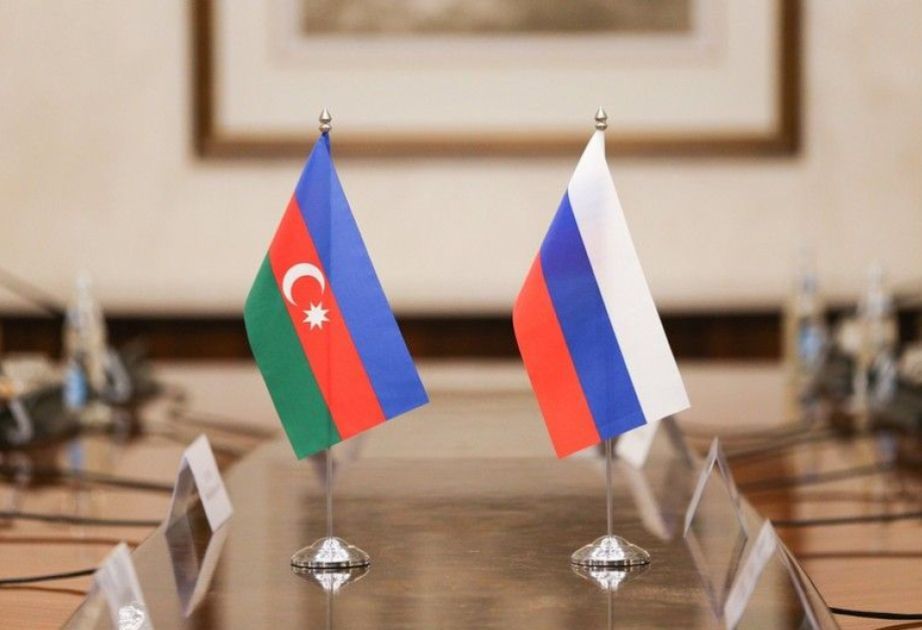Baku-Moscow reset relations through pragmatic diplomacy

A famous Azerbaijani proverb says that a close neighbor is better than a distant relative. This simple but profound wisdom has guided Azerbaijan’s foreign policy for decades. The country has always aimed to build stable, mutually respectful, and constructive relations with its neighbors. Azerbaijan understands that in a region as strategically complex as the South Caucasus, cooperation with neighboring states is not only a matter of diplomacy but also a matter of national security and economic growth. Unfortunately, there are always some forces than t attempt to create divisions between Azerbaijan and its neighbors, seeking to exploit tensions for their own agendas.
The recent cooling of relations between Azerbaijan and Russia can largely be traced to the activity of these disruptive actors. The downing of an Azerbaijani aircraft over Russian airspace triggered a wave of tension. Within Russia, public figures such as Margarita Simonyan, Konstantin Zatulin, and Vladimir Solovyov and others played active roles in inflaming the situation, pouring oil on the fire. Their rhetoric, often sensationalist and politically charged, aimed to push bilateral relations into a crisis, undermining the decades-long framework of cooperation that had been carefully cultivated.
However, the recent high-level meeting in Dushanbe has shown that Azerbaijan’s law-based and pragmatic foreign policy approach remains effective. The meeting between the presidents of Azerbaijan and Russia sent a clear signal to both domestic and international audiences: the period of tension and mutual suspicion is behind us. The careful diplomacy that Azerbaijan has pursued has borne tangible results, demonstrating that rational engagement and respect for international norms can overcome even the most challenging crises. The Russian president’s statements regarding the aircraft incident confirmed that these issues have been addressed and resolved, opening the way for a renewed chapter in bilateral relations.
The significance of these developments goes beyond the mere resolution of an isolated incident. They mark a clear defeat for those who attempt to interfere in Azerbaijan-Russia relations for ideological or geopolitical purposes. Figures such as Simonyan, Solovyov, and Zatulin, along with other Armenian-leaning or anti-Azerbaijani voices, failed in their efforts to destabilize the relationship. Their repeated attempts to provoke discord have been countered by rational, principle-based diplomacy. This outcome demonstrates an important lesson: neighborly cooperation, grounded in mutual understanding and respect, remains stronger than propaganda-driven attempts at division.
Moreover, President Putin’s media statements clarified another critical dimension: the deliberate efforts of anti-Azerbaijani, Armenian-leaning forces within Russia are acknowledged and countered at the highest levels. By addressing these issues publicly, both countries signal a commitment to constructive engagement that leaves little room for outside interference. This approach not only stabilizes bilateral relations but also contributes to broader regional stability.
As another Azerbaijani proverb emphasizes, a neighbor often depends on another neighbor’s ash. When viewed through a political and economic lens, this saying underscores a universal truth: the highest returns in diplomacy and commerce often come from relationships with neighboring countries. Proximity, shared history, cultural familiarity, and mutual understanding make cross-border cooperation more effective and resilient. Azerbaijan and Russia, despite occasional political turbulence, continue to exemplify this principle. Their ties extend across multiple dimensions: cultural, economic, and strategic.
Economically, the relationship between Azerbaijan and Russia is both deep and mutually beneficial. Russia holds a significant share in Azerbaijan’s non-oil exports, often ranking first among its destination countries. This highlights the diversification of Azerbaijan’s economy beyond the energy sector, a priority for Baku in recent years. Conversely, Azerbaijan plays an important role in supplying food products to Russia. While Azerbaijan’s contribution may be modest in the context of Russia’s vast market, it is strategically meaningful, fostering interdependence and stability.
Finally, the recent developments between Azerbaijan and Russia demonstrate that neighborly relations, when based on mutual respect, pragmatism, and legal norms, can overcome attempts at destabilization. The enduring message is clear: third-party efforts to sow discord between these two nations are not only futile but counterproductive. Azerbaijan’s foreign policy, grounded in rationality and foresight, has ensured that ties with its neighbors remain strong, productive, and mutually beneficial.
Here we are to serve you with news right now. It does not cost much, but worth your attention.
Choose to support open, independent, quality journalism and subscribe on a monthly basis.
By subscribing to our online newspaper, you can have full digital access to all news, analysis, and much more.
You can also follow AzerNEWS on Twitter @AzerNewsAz or Facebook @AzerNewsNewspaper
Thank you!
